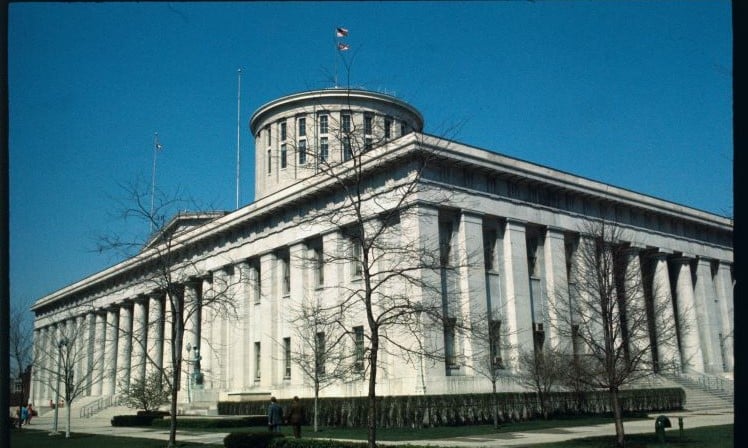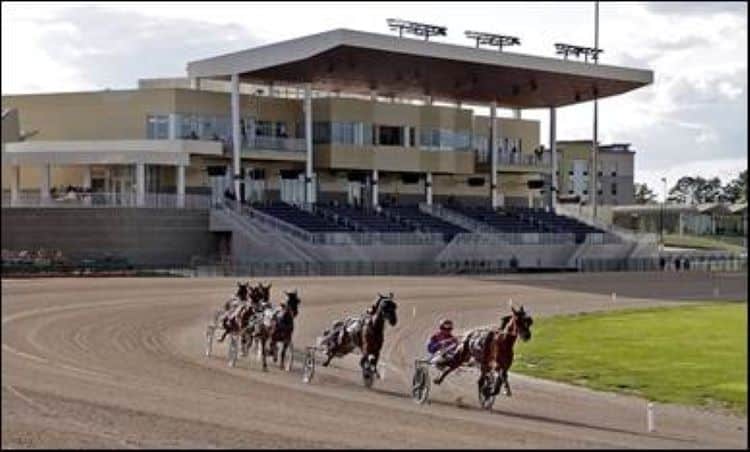State legislators beginning review of the Ohio Casino Control Commission’s budget proposal focused Tuesday morning on a potential spike in problem gambling from sports betting rather than a possible increase in the sportsbooks’ tax rate.
Legislation recently introduced on behalf of Gov. Mike DeWine representing his budget plans for the 2024 and 2025 fiscal years included his proposal to double the tax rate on sportsbook revenue from 10% to 20%. It was an unexpected idea, coming less than two months after the state launched sports wagering on Jan. 1.
OCCC Executive Director Matt Schuler volunteered no comment about the tax rate, however, when testifying on the commission’s budget for the House Finance Subcommittee on Primary and Secondary Education, and the committee members offered no comment or questions about it.
Instead, they focused on reports of an approximate tripling in state problem gambling helpline calls (at 800-589-9966, or 1-800-GAMBLER) last month compared to January 2022. The Dayton Daily News reported that the phone line that provides referrals and resources was up to 1,492 monthly calls from 456.
The surge — which Schuler referred to as “staggering” — came during the first month of widespread adoption of mobile and retail sports betting by Ohioans. The casino commission’s budget request includes $500,000 to be allocated to problem gambling assistance specifically connected to sports betting.
Not all calls represent actual problems
Many phone calls to such helplines are not specifically from people with gambling problems — they are often misdirected calls from people seeking information about gambling opportunities.
As to calls concerning actual problems, Schuler noted that many still stemmed from other forms of longtime legal gambling such as casino visits, rather than sports betting. In addition, he said, the launch of sports betting has been accompanied by far wider promotion of helplines and assistance for any gambling disorder than was previously the case, which is part of the reason for increased call volume.
Still, Schuler said there’s no doubt that sports betting shares in responsibility for generating more problems and helpline calls.
Rates of problem gambling are higher among males ages 18 to 35 than other parts of the population, he noted, while at the same time pointing out that group is the target demographic for mobile sports betting companies.
“You have this convergence, which basically makes it ground zero,” Schuler said.
When legislators asked if Schuler was confident the budget request represented enough effort to combat problem gambling, he noted efforts have already been expanding in collaboration with the Ohio Lottery Commission and Ohio Department of Mental Health and Addiction Services, including new online options for exclusion from the various forms of gambling through the Time Out Ohio program.
“Let’s see what the numbers look like and if we need more,” he said of the need for help.
Of the recent call volume itself, Schuler said, “We knew they’d go up — we didn’t anticipate they’d go up quite that much.”
Marketing is also an issue
Schuler touched briefly, in response to legislators’ questions, on the aggressive stance the casino commission has taken regarding inappropriate advertising and marketing by online sportsbook operators, four of whom have paid or face heavy fines.
House Bill 33, the voluminous legislation incorporating DeWine’s budget proposals, in fact includes provisions proposing to outlaw advertising of “risk-free” bets in cases where customers have to put up money in some form. By virtue of its penalties against companies, the casino commission has already put such a ban into practice as the regulator.
When a committee member asked whether the OCCC needs additional tools to curb excessive or inappropriate marketing, Schuler pointed out that European countries have already been much more restrictive than states in the U.S. that have adopted legalized sports betting.
He noted that in the United Kingdom and elsewhere, it may not be possible to advertise a sportsbook during a game telecast or on uniforms worn by athletes.
“We don’t have authority to stop that,” Schuler said, noting such stiff measures require legislative action. “It’s a policy call for you all. We would be happy to execute any authority given to us.”
Photo: Getty Images








